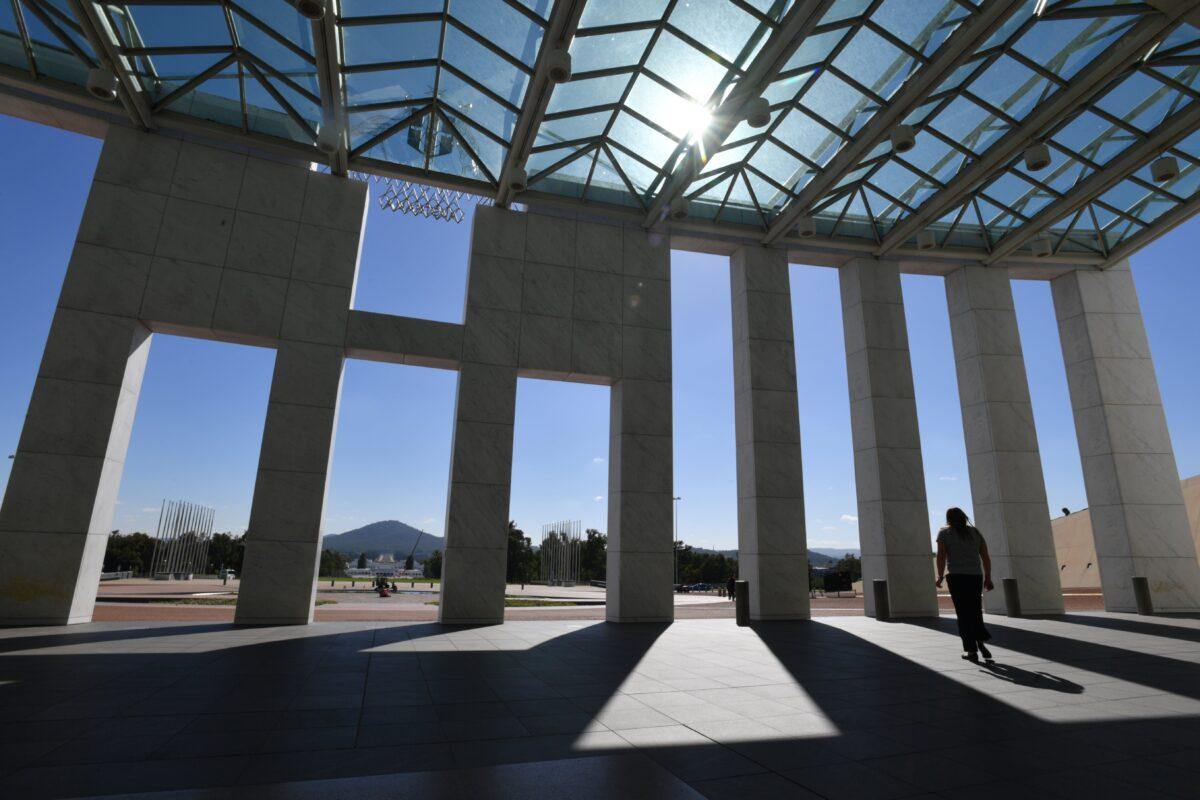In June, the Albanese Labor government released an exposure draft of a dystopian proposed legislation that will empower a government body, the Australian Communications and Media Authority (ACMA), to police online “misinformation” and “disinformation.”
The “Mis/Dis Bill” is accompanied by a guidance note with little transparency and an invitation to make a submission by the first week of August.
A famous author once said of this kind of regulation, “The great enemy of clear language is insincerity. When there is a gap between one’s real, and one’s declared aims, one turns ... to long words and exhausted idioms, like a cuttlefish spurting out ink.”
That author was George Orwell, whose own wartime experience in England meant he could see the dangers of a “Ministry of Truth” in the style of Stalinist Russia, even in Western democracy.
Already, the Albanese government has been ridiculed for proposing its own “Ministry of Truth.”
The body that will be charged under the Mis/Dis Bill with determining what information we can see on digital platforms and what we can’t see is the ACMA. Its target is “misinformation,” which includes “information that is false.”
Strictly speaking, it would not be an Orwellian “Ministry of Truth” but a “Ministry of Unfalsehood” or “Ministry of Non-misinformation.” A name like that would certainly suggest it is controlling truth. That is exactly what this Bill is about.

An unappealing feature of the Bill is that any information disseminated after it has been authorised by the government, even if it is downright false, deceptive, or misleading, can never, by definition, ever be “misinformation.” Remember, “Big Brother is infallible.”
True for the Wrong Reasons
The point of the Bill is to protect us, the Australian people, from “harm.” It is all for our good.The message we are meant to take from it is how grateful we should be that the government is standing in to protect us; information is so powerful that we need ACMA as our nursemaid.
It is certainly true that information can be powerful, but the Australian public is not so easily fooled into believing that we need protection from information on these terms.
It is, at the very least, a half-truth. Information is harmful in obvious but different ways than the Bill would have us believe. It is a potent force in exposing untruths, correcting lies, and combating evil.
Information conveyed through freedom of expression, in the hands of Australians, is the only means of doing that.
The worst of all worlds is one in which information is so guarded and sanitised by the authorities with power that the government is immune from challenge or criticism.
The real power of information lies in its effectiveness in holding those in authority accountable. It can topple unjust, illegitimate regimes.
This government is right to associate information with “harm,” but not for the reasons given.
Seen through the eyes of those seeking illegitimate rule, the key to excessive and ultimately totalitarian power is the manipulation of public opinion by the regulation of information.

We Must Protect Our Own Freedoms
A Bill of this magnitude and importance, munificently offered “for the safety and wellbeing of Australians, as well as to our democracy, society, and economy,” deserves proper public consultation and careful scrutiny.Every Australian is affected by what they say on social media and what they want to hear. They want to continue to be players in the very communication platforms which are pivotal to the enjoyment of personal freedoms on which democracy, as they know and love, rests.
In proposing this Bill, the Australian government would presumably take credit for letting the public have their say. Except it isn’t.
It appears there is no decent consultation period (of three months or more). There is no properly chaired impartial committee process, superintended by a responsible and respected individual, in which stakeholders can air their concerns openly.
If the next steps are a swiftly produced report and the introduction of the Bill into Parliament, be shocked. This is one of the most far-reaching proposals since the Commonwealth Parliament was given legislative power.
How much of the Bill is itself an exercise of misinformation, dependent on the tools of falsehood, deception and misleading parliamentarians and the public? The Bill needs to be examined, tested, criticised objectively, and appreciated for the harm it can produce.
This takes time. Australians are being ambushed.
Australians should do what they can to keep hold of one of the greatest powers at their disposal—to call out the misuse of authority. They should voice their opinions on the Bill’s impact on their own free speech and their access to the free speech of others. It is feared by the government for a reason.
Do not let yourselves be silenced.
Because as John Stuart Mill famously wrote in his book “On Liberty” in 1859,
“The peculiar evil of silencing the expression of an opinion is that it is robbing the human race; posterity as well as the existing generation; those who dissent from the opinion, still more than those who hold it. If the opinion is right, they are deprived of the opportunity of exchanging error for truth; if wrong, they lose, what is almost as great a benefit, the clearer perception and livelier impression of truth produced by its collision with error.”


